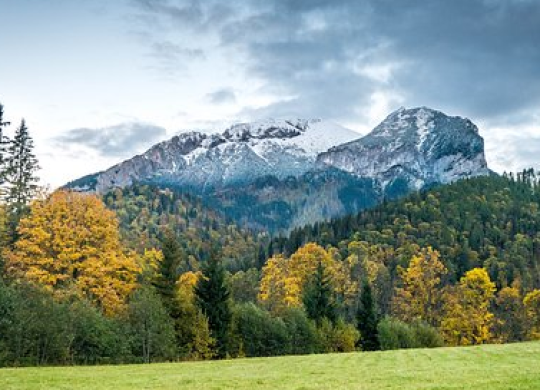How to get a higher education in Slovakia: tips for university admission
Table of contents

Slovakia is a small state in Europe. The population is very hospitable. The capital Bratislava is ready to receive foreign tourists at any time of the year, as here the climatic conditions are favorable for staying in the country in any season. Economic stability and systematic development have become determining factors for applicants from many countries to choose Slovakia for higher education.
The education system in Slovakia
There are many public, state, and private institutions of higher education in Slovakia. And for foreigners, there is an opportunity to study free of charge in the Slovak language. Programs in English are paid for, but their cost is much lower than similar ones in Europe.
The most popular universities in Slovakia:
- Slovak Technical University in Bratislava
- Comenius University in Bratislava
- Matej Bela University in Banska Bystrica
- Žilina University
- Technical University in Kosice
- University of Presov
- University of Economics in Bratislava
One of the differences in education in Slovakia is the opportunity for student to choose their own academic disciplines. The learning process itself consists of a set of study credits, which should be enough to move on to the next course. 1 academic discipline on average 4 credits.
In universities in Slovakia, you can get academic degrees:
- bachelor - 3 years;
- master - from 2 years;
- doctor - 3-4 years for writing and defending a scientific work.
The most popular specialties:
- lawyers;
- marketers;
- experts in the field of international law and trade;
- economists.
The most talented students can receive a scholarship ranging from €250 to €1000.
And the cost of education is from €800 for 1 semester in Slovak and from €1000 for 1 semester in English.
How to apply to a university in Slovakia
In order to study in Slovakia, you need to apply for a category D visa. It allows you to stay on the territory of the state for 90 days. If the duration of the educational process is longer, then it is necessary to issue a residence permit.
An important role in entering the university is played by grades in the applicant's certificate (average score). Studying at a state university is considered more prestigious.
If an applicant has completed preparatory courses accredited by the Slovak Ministry of Education, then there is an opportunity to enter some universities and some specialties without entrance exams. In all other cases, you will have to surrender.
Documents for admission to the university of Slovakia:
- fill out an application online
- extract grades for grades 8-10 (annual) and the first semester of grade 11;
- autobiography;
- medical certificate;
- international passport (copy);
- 2 photographs of 3cm x 4cm format;
- a certificate with the application (original);
- pay the state fee and nostrification of the document on education (60-80 euros);
- pay for the application to the selected educational institution (50-80 euros).
Some universities may additionally require certificates of language proficiency (Slovak and English):
- English (IELTS/TOEFL);
- Slovak language (The Certificate of Slovak Language proficiency).
When a student has already been issued a residence permit and is studying at one of the universities in Slovakia, then he has the opportunity to earn extra money part-time (20 hours a week).
This greatly facilitates the possibility of paying for tuition, as on average students can earn about €500 per month.
There is also an internship option available in your specialty. This will allow you to gain practical skills while still studying at the university.
Thus, getting higher education in Slovakia is not only affordable but also prestigious. And the presence of scholarship programs and a simplified procedure for admitting foreigners to study make this country attractive to applicants from many countries of the world.
Recommended articles
3 min
Education
Study in Ireland in 2024: Benefits, How to Apply, Visa Requirements and Scholarships Available
Ireland is a great country for international higher education because it offers high quality education, relatively low tuition fees, and good prospects for further development. In addition, students can legally work in the country while studying. Find out all about the rules and conditions for international students in Ireland in 2024
28 May. 2024
More details2 min
Education
Education in Brazil in 2025: Detailed Guide for International Students
Studying in Brazil is becoming increasingly popular among international students due to its quality of education and affordability. Learn how to apply to a Brazilian university, get a student visa, and find scholarships. This article looks at the education system, language requirements, costs, study benefits, and career opportunities
16 Nov. 2025
More details5 min
Education
5 min
Education
All materials and articles are owned by VisitWorld.Today and are protected by international intellectual property regulations. When using materials, approval from VisitWorld.Today is required.